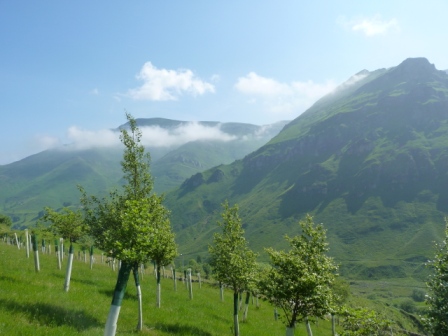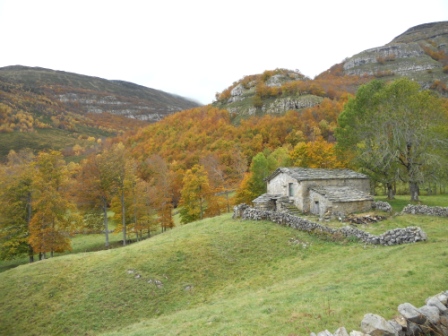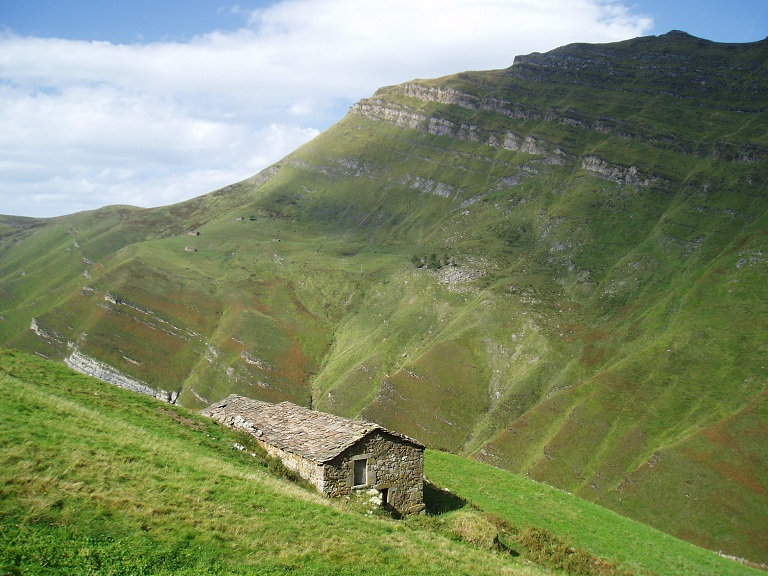Baza danych projektów PROW
Mountain Area Management: the Pasiega Mountain
Summary
This project is an example of how the integrated management of mountain areas directly contributes to their sustainable development. It also highlights the importance of the rural population to the implementation of a project.
Background
The Pasiega Mountain, on both its Cantabrian and Castilian-Leonese slopes, suffers from a number of environmental, cultural and social deficiencies and needs. Some of the region’s more pressing environmental issues are: deforestation, erosion, forest fires, loss of biodiversity and poor woodland regeneration. Also, there is a loss of traditional architectural assets related to livestock breeding, and increasing depopulation due to the poor diversification of the region's economy.
Objective
The primary objective of the project is to maintain a stable population with possibilities for socioeconomic development, while reviving traditions through the re-establishment of natural forest habitats and wild and domesticated species of the flora and fauna of the Pasiega Mountain region. More specifically: conservation of local varieties of cattle, sustainable management of hunting activity, restoration and conservation of forest ecosystems.
Main activities
1) Mobilising society to acknowledge Pasiega Mountain as a World Heritage Site; 2) Conservation of local varieties of cattle, through the acquisition and handling of the respective species; 3) Sustainable hunting management: creation of a register of hunting species and control of the activity; 3) Promoting restoration of forest ecosystems and the maintenance of previous repopulations; 4) Conservation of ethnographic heritage and traditional uses; 5) Environmental management and education.
Results & Benefits
1) Maintaining old plantations in a satisfactory condition, along with the reforestation of at least 20 hectares of indigenous forest; 2) Securing the local rural population while putting into practice traditional cattle breeding methods, ensuring its economic viability; 3) Increase in the demographic levels of hunting species thanks to the implementation of eco-friendly hunting activities; 4) Increased awareness and appreciation among the local population, particularly amongst schoolchildren.
Lessons learnt
Integrated management of mountain terrains contributes to their sustainable development and highlights the importance of the rural population involvement. Participation of different sectors (extensive cattle farming, infrastructures and forestry) has helped to achieve an integrated and sustainable development of the region. Dialogue among the participants enabled to identify adaptations required during the implementation of the project.
Project location and other information
Castilla y León, Cantabria
Region
Castilla y León
RDP Territory
Castilla y León
Total project cost (€)
603 386
EAFRD contribution (€)
54 020
National contribution (€)
509 985
Private contribution (€)
28 475
Other funding sources (€)
10 906
Project website
Contact name
Fundación Naturaleza y Hombre
Telephone
+34 942559119
Languages for contact
Spanish
At a glance
Country
Spain
Final beneficiary type
Individual farmers, Public/local authorities
Budget range
> €500 000
Start date:
01/01/2009
End Date:
31/12/2011
Theme / Measure:
• Environment and Sustainable Resource Management
• Sustainable use of forestry land
• 226. Restoring forestry potential and introducing prevention actions
Keywords:
Forest management, Cultural heritage, Livestock husbandry, Environmental education
Last update
12/05/2014







